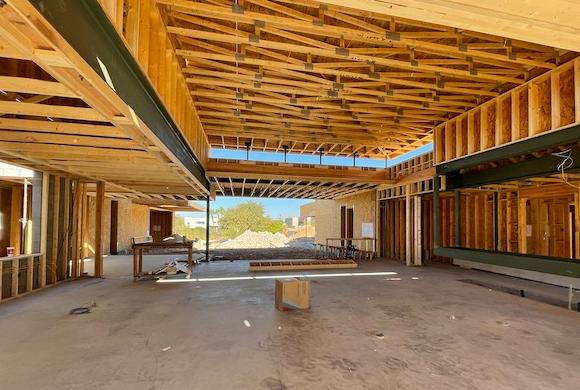
- posted: Sep. 13, 2021
- Construction, Real Estate
Almost every week, our clients embark on substantial construction projects involving the renovation or ground-up construction of their homes. These projects often involve hundreds of thousands, if not many millions of dollars. No matter the budget associated with the project, it is essential that the construction contracts be carefully reviewed by knowledgeable legal counsel experienced in this practice area to avoid disputes when issues arise or where expectations are not met. The following is a list of important considerations when entering into a residential construction contract:
- Use of Form Agreements. Many general contractors prefer to use their own form of construction contract. In our experience, these forms are generally inadequate. They are often one-sided and – equally significant – poorly written, usually due to modifications made over many years of use. Some general contractors use, or at least are familiar with, the forms of contract generated by the American Institute of Architects (“AIA”). In our experience, these forms are much preferable to a typical general contractor’s form. We often suggest that a client use an AIA form which we tailor to suit the transaction or a custom agreement depending on the scope and unique characteristics of the particular project.
- Fee and Cost Structure. There are three basic approaches to structuring construction costs in construction contracts: (1) stipulated sum, (2) cost of work plus a fixed or percentage of costs fee, and (3) cost of work plus a fee subject to a guaranteed maximum price. There are pitfalls with the “cost of work plus a fee” approach because there is no maximum on costs, and the structure rewards the contractor for higher construction costs. Ideally, the plans will have been developed to such a stage that the contractor can provide a fixed (stipulated) bid, or at least a guaranteed maximum price, for the work with a minimum of unknowns in the form of alternatives or allowances. Most contracts provide for allowances—an amount specified for a certain item of work (e.g., appliances, fixtures, etc.) whose details are not yet determined at the time the contract is signed. The construction cost is then adjusted if the item of work turns out to cost more or less than the specified allowance. We recommend keeping allowances to a minimum and providing for realistic amounts. It is also important to understand whether the allowances take into account delivery, labor, installation, and the contractor’s fee, or whether these costs are otherwise part of the bid. For more information on construction pricing options, see our article here.
- Retention. A retention is an amount due to the contractor for work performed, which is withheld until final completion of construction. Generally, we believe that every construction contract should provide for appropriate retention, subject to the possibility of partial releases when certain elements of the work are completed in advance of the final completion date. The retention (or at least a significant portion of it) should not be released until the work is finally complete, including punch list items, and the contractor has provided appropriate lien waivers for itself and its subcontractors and suppliers, as well as other close-out items such as product warranties and manuals.
- Lien Waivers. As a condition to each progress payment and the final payment, the contractor should provide lien waivers for itself and its subcontractors and suppliers who are entitled to lien the property. This could be difficult for a client to manage. The client may wish to engage professionals to perform this task.
- Warranty. A general contractor should provide a warranty for the work it performs. There are minimum warranties that are required under Arizona law. The client should understand that the breadth and length of warranties are negotiable.
- Change Orders. Change orders are an unavoidable part of any construction project and often result in a cost increase. They can be minimized by having a substantially complete set of plans and specifications prepared prior to commencing construction. No change to the project should be permitted without a written change order signed by the contractor and owner (or owner’s authorized agent) and which details the nature of the change, any impact on cost, and any effect on the construction schedule.
- Dispute Resolution. We typically recommend that a construction contract provide for streamlined arbitration of disputes because, in our experience, it tends to be quicker, less expensive, and more private than litigation. In most cases, the contract should provide that the work continues notwithstanding any dispute.
- Project Manager. Unless the client has the time and energy to keep close track of the project, we recommend that the client consider retaining an owner’s representative to monitor the work, approve bids, review shop drawings, review and approve change orders, manage requests for information, and certify applications for payment (which would include confirming that the work has been completed to an appropriate level to justify payment).
- Insurance. Many clients are surprised to learn that ordinary homeowner’s insurance will not cover major construction issues and has many exclusions. Builders risk insurance is typically necessary, as is addressing specific obligations of the general contractor with respect to general liability, workers compensation, insurance of subcontractors, among other things.
While there are many other issues to consider before entering into a construction contract, this list includes some of the most important ones. We look forward to assisting our clients with these matters and answering any questions they may have. Please contact Keith Galbut ([email protected]) to discuss your specific needs.


